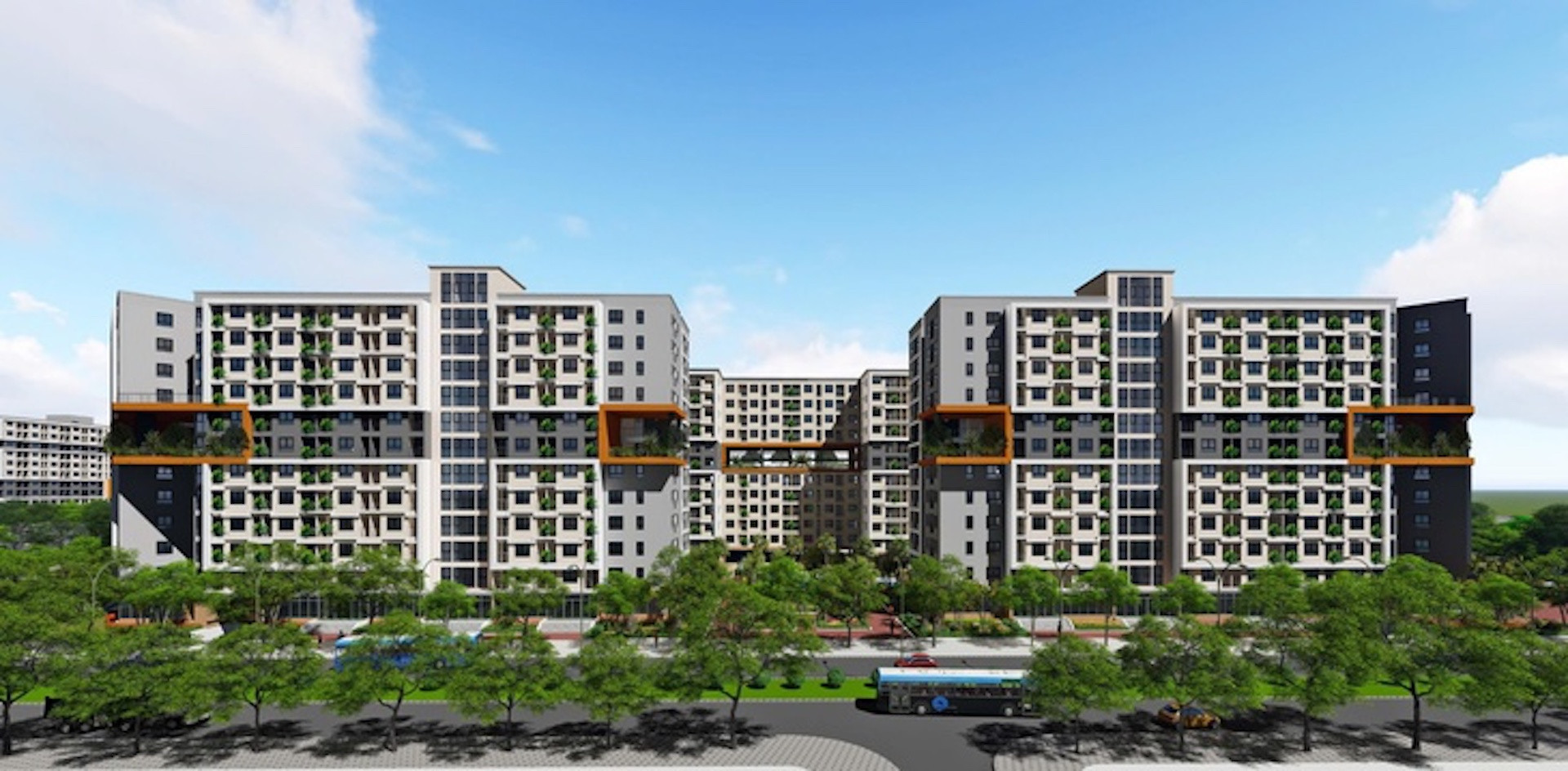
In concluding remarks at a nationwide online conference held March 6 to address challenges and promote social housing, Prime Minister Pham Minh Chinh acknowledged that despite initial achievements, the outcomes have not yet met expectations or desired goals.
As many as 655 social housing projects have been implemented nationwide, with a scale exceeding 593,000 units. Nevertheless, many localities are lagging behind the targets outlined in the plan under the "Investment Project to Build at Least 1 Million Social Housing Units for Low-Income Individuals and Industrial Zone Workers in 2021-2030".
Additionally, the disbursement of the VND120,000 billion preferential credit package for social housing remains slow because of legal problems. Social housing developers complain about obstacles related to land access, investment and construction procedures, contractor selection, credit availability, and preferential policies.
The Prime Minister has outlined 10 groups of tasks and solutions for ministries, sectors, and localities.
Regarding institutional frameworks, Chinh tasked the Ministry of Construction (MOC) with reviewing regulations, procedures, and procedural bottlenecks—identifying where issues arise, who is responsible for resolving them, how long resolution will take, and when results will be delivered.
In principle, everything must be clear, from personnel, tasks, timelines, responsibilities, and outcomes. It is also necessary to clarify which agencies must be responsible for amending laws and regulations, and the agencies must submit amendment plans to the government for submission to the National Assembly.
Emphasizing the need for incentive policies, the Prime Minister mandated that these be submitted in March or by April at the latest.
MOC has been assigned to review standards, regulations, and norms related to social housing (such as height, construction materials, etc.). He requested to design suitable models so that mass production could be studied, and prefabricated structures could be used for quick construction.
At the same time, the ministry has been tasked with assigning the Vietnam Architects Association to organize a social housing architectural design competition, funded by the state budget, to be launched before April 30.
It would be preferable to assign large corporations to implement projects, thus helping foster the growth of industries supporting social housing, such as steel and concrete component manufacturing.
For localities, the Prime Minister required the planning and adjustment of social housing plans to be completed by the second quarter at the latest, with any obstacles to be reported for resolution.
Localities must develop infrastructure to meet requirements, while using public investment if necessary. Synchronous contractor selection for both social housing projects and infrastructure may be permitted, with a critical focus on preventing corruption, misconduct, and waste.
Of the 10 groups of issues and solutions highlighted by the Prime Minister, resource mobilization is a key focus. He directed the establishment of a National Housing Fund, with Deputy Prime Minister Ho Duc Phoc tasked to oversee the Ministry of Finance in completing this by March 2025.
Additionally, the Prime Minister requested the approval of lists of individuals eligible to buy, lease, or rent social housing based on population data integrated with standards and criteria.
The State Bank of Vietnam (SBV) has been instructed not to include social housing loans in commercial banks’ credit limits.
Chinh also assigned the Government Office to lead efforts in reviewing and reducing administrative procedures by at least 30 percent in 2025. "If people in need must wait 5 or 10 years for social housing, the social housing program serves little efficiency," he remarked, underscoring the need to combat corruption, misconduct, and waste.
Regarding proposals raised at the conference, the Prime Minister requested their compilation and submission to the Government to address matters beyond its authority, including a proposal to issue a Government Resolution to pilot contractor appointment for social housing projects.
For localities where social housing projects are operating, he urged determined efforts to complete and open them within 2025.
Localities with significant social housing demand, particularly Hanoi and HCM City, have been called on to enhance leadership accountability, and lead efforts to promote social housing development to meet the targets set in the project.
HCM City and Hanoi must build 100,000 more units by 2030 each to reach the targets of 67,000 and 45,000 units, respectively.
Hong Khanh